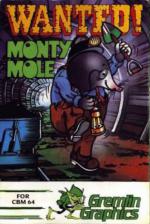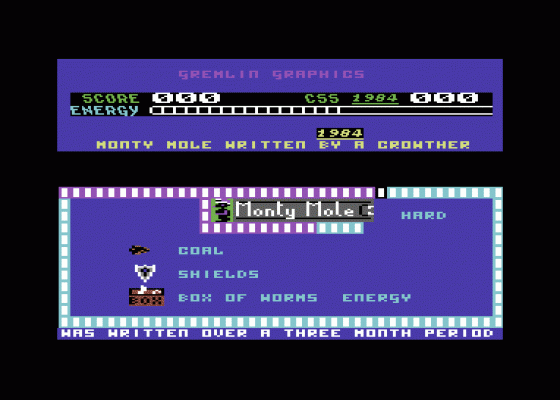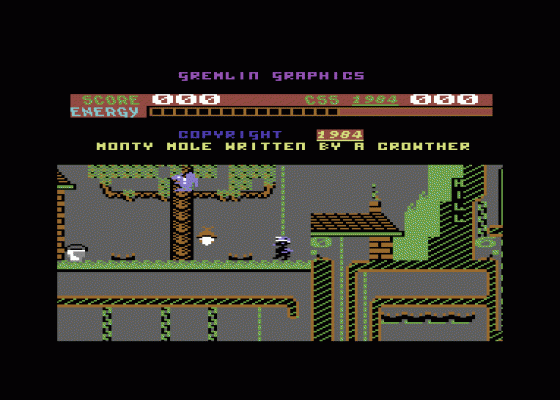
Personal Computer Games
 1st October 1984
1st October 1984
Categories: Review: Software
Author: Chris Anderson
Publisher: Gremlin
Machine: Commodore 64
Published in Personal Computer Games #11
Wanted: Monty Mole
How do you get a computer game featured on TV? Simple! Base it around a current major talking point, such as the miners' strike, and then include a controversial figure like Arthur Scargill as one of the characters. Thus it was the people at Gremlin managed to get Monty Mote on News at Ten and ensure themselves thousands of pounds worth of free publicity.
Mind you, the game deserves it - it's very impressive. Or to be more precise they're very impressive; the versions on the Spectrum and C64 are almost two different games.
On both, the aim is to guide a very cute mole around a mine collecting coal and avoiding such horrors as flying pickets, mammal-eating fish and coal crushers. They're both platform games, so you might be permitted a groan at this point on the assumption that these are simply new renderings of Manic Miner.
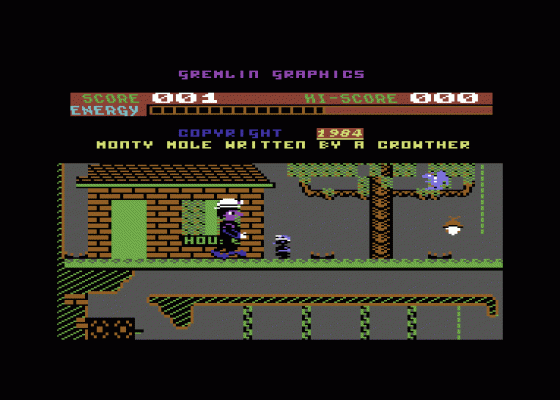
Well, there are enough differences to give these games an original feel. For a start, the depiction of the mines is graphically very impressive. In both games, but especially on the C64, there is great variety in the different screens: huge, crushing pistons, ropes for climbing, lakes, sliding floors, vertical conveyor belts and much much more.
Your task is also different from previous games in the genre. In the Spectrum version, there are 20 screens divided into four regions. You can move freely from screen to screen within a single region, but your progress beyond that will be barred until you've collected all the coal in that region.
Once the coal is collected a wall will dissolve, and you have one (and only one!)) chance of getting into the next group of screens before the wall reforms.

Another innovative feature on the Spectrum version is the provision of weapons you can collect. Each weapon allows you one safe contact with an attacker. Just as well, since some pieces of coal would otherwise be unreachable.
One of the main differences in the C64 version is that you don't have separate screens. Instead the picture scrolls as Monty moves, in similar fashion to programmer Tony Crowther's earlier game Son Of Blagger.
In this version the mine contains fourteen 'master switches' which you must operate in order. Each switch creates (somewhere!) a piece of coal which must be collected and an energising 'box of worms'.

Finding the latter will restore the energy which is constantly being depleted by contact with the mine's inhabitants.
But you only get one point for each piece of coal collected - so you could be halfway through the game and only have seven points. The Spectrum version is a bit more generous.
What about Arthur Scargill? Well, he doesn't appear until the final stages when you have to collect a set of ballot papers in a bid to topple him. I failed to do this, which must be one of the few things I have in common with Margaret Thatcher.

One criticism of both games is that the instructions are inadequate. For example, they only hint at the fact that in the first screen there's a bucket which must be picked up if any coal is to be collected at all. And in the C64 game, the function of the master switches is not explained.
I also found control of the mole a little difficult in both games, even with a joystick (the Spectrum version is compatible with Kempston and Sinclair Interface 2).
One really poor feature of the Spectrum game is the hymn tune which plays when you die. It sounds horrible. Sound on the C64 game is a lot better, with a very attractive rendition of Colonel Bogey as a background tune.

In my view, platform games still have a long way to run. If you can put up with a measure of frustration, Wanted Monty Mole will unearth a great deal of action for your money.
Spectrum Version
Peter Walker
Monty Mole owes much to Miner Willy and seems set to become as big a star.
The graphics on this game are magnificent, as good as any I've seen on a Spectrum. The movement is very smooth. Monty himself is a graphical masterpiece, and his walking, jumping and climbing is a delight to watch. The sound effects are not brilliant but otherwise this is a marvellous game.
Martyn Smith
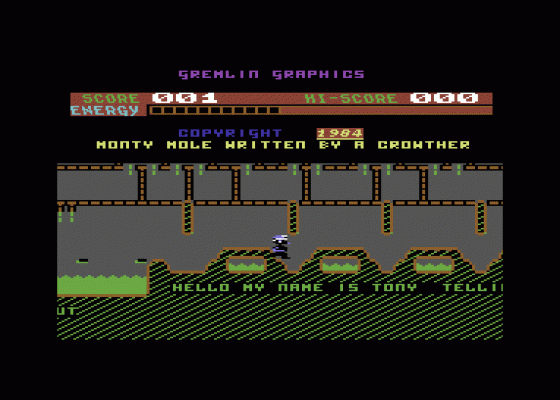
This game was given a lot of free publicity by being featured on television - it looked good then and graphically it is brilliant. However, as a game concept, it leaves much to be desired.
A couple of years ago, it would have been hailed a great step forward in computer programming. Now after games like Jet Set Willy, the 'exploring unknown caverns filled with craaazy hazards' is rather old hat.
The graphics are without doubt the best ever on the Spectrum, though Monty is difficult to control, being so large, and this causes some problems when trying to get out of a tight corner quickly.
Commodore Version
Jeremy Fisher
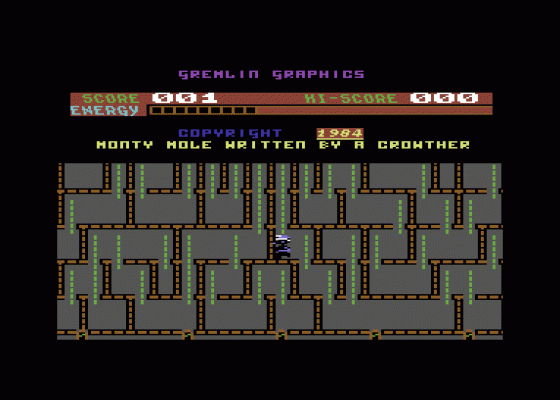
This must surely be a first! A political computer game!
The multiple scrolling screen play area adds a new dimension to platform games. 'Colonel Bogey' was some of the best computer music I've ever heard.
Fraser Marshall
As you would expect from the author of Loco, this game is of excellent quality. Although based on a familiar idea, the novel graphics provide great gameplay. The fact that the action covers many screens means that you will be going on a different voyage every time you play.
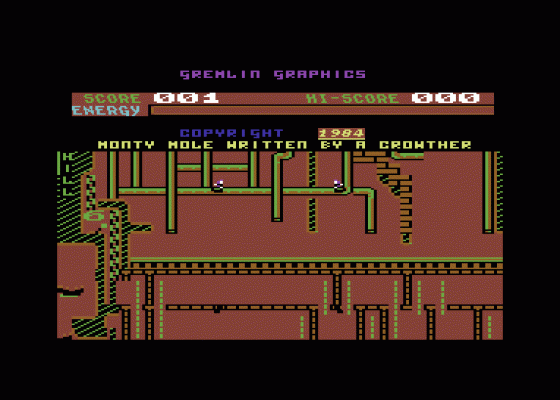
Although produced by Gremlin Graphics, I could find no bugs - it's a game you'll really dig!
Richard Patey
Once the mole is down the shaft, you're treated to some of the best animation ever - snapjaw plants, cool-crushers and others, all visible according to where you are, with that smooth omni-directional scrolling taking you there.
But how many people will score more than 10 points?

